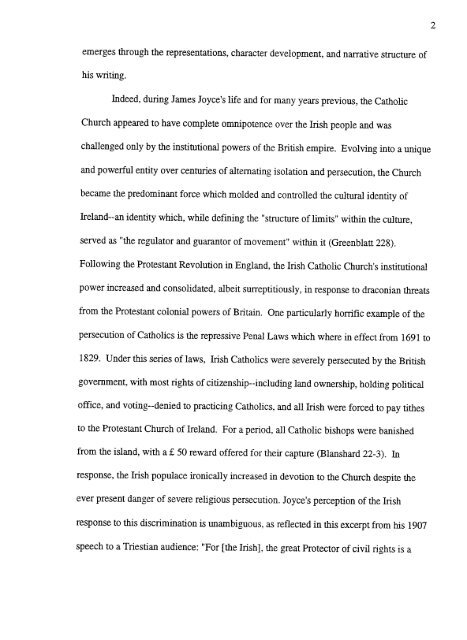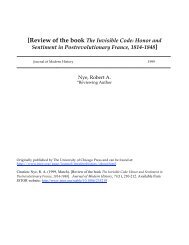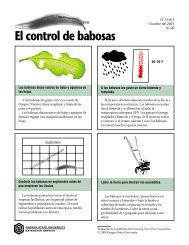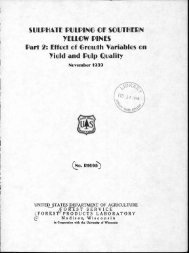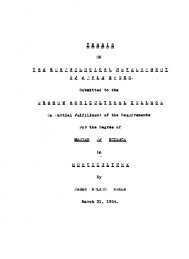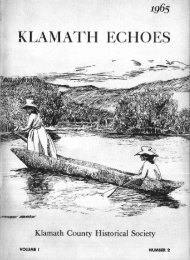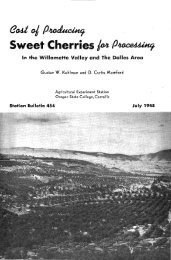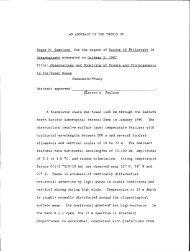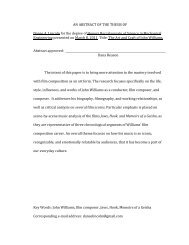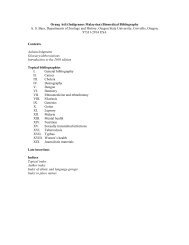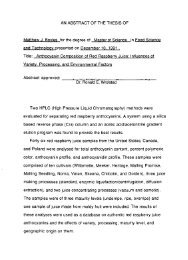Faubourg Saint Patrice - ScholarsArchive at Oregon State University
Faubourg Saint Patrice - ScholarsArchive at Oregon State University
Faubourg Saint Patrice - ScholarsArchive at Oregon State University
You also want an ePaper? Increase the reach of your titles
YUMPU automatically turns print PDFs into web optimized ePapers that Google loves.
emerges through the represent<strong>at</strong>ions, character development, and narr<strong>at</strong>ive structure of<br />
his writing.<br />
Indeed, during James Joyce's life and for many years previous, the C<strong>at</strong>holic<br />
Church appeared to have complete omnipotence over the Irish people and was<br />
challenged only by the institutional powers of the British empire. Evolving into a unique<br />
and powerful entity over centuries of altern<strong>at</strong>ing isol<strong>at</strong>ion and persecution, the Church<br />
became the predominant force which molded and controlled the cultural identity of<br />
Ireland -an identity which, while defining the "structure of limits" within the culture,<br />
served as "the regul<strong>at</strong>or and guarantor of movement" within it (Greenbl<strong>at</strong>t228).<br />
Following the Protestant Revolution in England, the Irish C<strong>at</strong>holic Church's institutional<br />
power increased and consolid<strong>at</strong>ed, albeit surreptitiously, in response to draconian thre<strong>at</strong>s<br />
from the Protestant colonial powers of Britain. One particularly horrific example of the<br />
persecution of C<strong>at</strong>holics is the repressive Penal Laws which where in effect from 1691 to<br />
1829. Under this series of laws, Irish C<strong>at</strong>holics were severely persecuted by the British<br />
government, with most rights of citizenship-- including land ownership, holding political<br />
office, and voting--denied to practicing C<strong>at</strong>holics, and all Irish were forced to pay tithes<br />
to the Protestant Church of Ireland. For a period, all C<strong>at</strong>holic bishops were banished<br />
from the island, with a £ 50 reward offered for their capture (Blanshard 22-3). In<br />
response, the Irish populace ironically increased in devotion to the Church despite the<br />
ever present danger of severe religious persecution. Joyce's perception of the Irish<br />
response to this discrimin<strong>at</strong>ion is unambiguous, as reflected in this excerpt from his 1907<br />
speech to a Triestian audience: "For [the Irish], the gre<strong>at</strong> Protector of civil rights is a<br />
2


